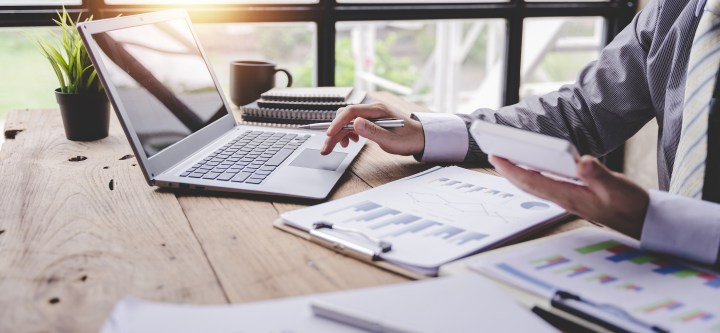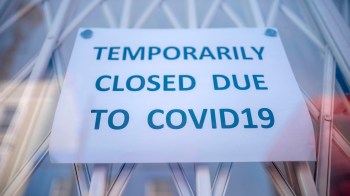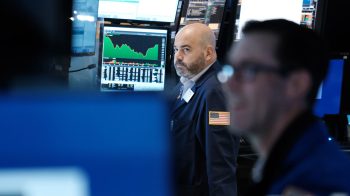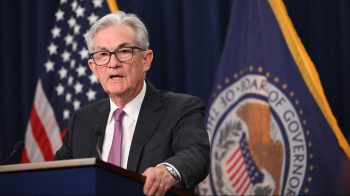
Economists used the business cycle to predict what’s next. It doesn’t work so well anymore.
Economists used the business cycle to predict what’s next. It doesn’t work so well anymore.

The “business cycle” might just be one of the oldest ideas in economics. For more than 200 years, economists have been pointing to the tendency of economies to expand, then slow down, contract and eventually recover.
Lather, rinse, repeat.
But a lot of the things we took for granted about this economy before the pandemic don’t seem to be quite so certain in this post-pandemic world. That includes the business cycle and what it typically implies about what’s coming down the road.
Businesses tend to make different decisions depending on what stage of the business cycle the economy’s in.
“Studying the health of businesses is very close to studying the health of the economy overall,” said Valerie Ramey, senior fellow at the Hoover Institution at Stanford University.
Ramey is also a member of the Business Cycle Dating Committee at the National Bureau of Economic Research, which is as close as we have to an official arbiter of when business cycles start and end.
One big sign that the economy’s in a recession? Businesses tend to lay off workers.
“The unemployment rate starts going up,” Ramey said. “Investment will typically go down.”
Eventually, the recession ends. Then the recovery phase starts. Businesses might start asking staff to work longer hours.
“Then, if they become more certain that this is going to be a sustained recovery, they’ll start adding more workers and hiring new employees,” said Ramey.
The unemployment rate starts falling. Businesses start investing in new equipment and buildings. At some point, the economy catches up to where it was before the recession. But eventually, Ramey said, that expansion phase of the cycle hits a peak.
“Investment tends to slow down,” Ramey said. “The unemployment rate, typically first you’ll see that it stopped declining and then maybe leveled off.”
This phase is also known as the late part of the business cycle, said Kathy Bostjancic, chief economist at Nationwide Mutual. Bostjancic said when the unemployment rate is low and the economy is pretty much maxed out, there tends to be a side effect.
“You start to see, at that point, demand sometimes outstripping the supply availability in the economy,” Bostjancic said. “And you tend to get inflation.”
Bostjancic said this is probably where we are in the business cycle right now. And if you look at what’s next in the business cycle’s rotation, things don’t look great.
“That is typically then when you start to see contraction set in, and then we’re back to recession,” Bostjancic said.
At least, that’s the theory.
“The recession that has not occurred has been the most forecasted recession in my memory,” said Anne Villamil, an economics professor at the University of Iowa. “And we are not in a recession.”
Villamil said the economy is nowhere near that point in the cycle right now. Economic growth is still strong. So is the labor market.
“Consumer spending is solid,” Villamil said. “People’s real incomes are solid. You’re actually better off. You can buy more goods and services every year.”
A big reason, Villamil said, is that the economy is still feeling the effects of the government’s response early in the pandemic — all of the relief aid and other fiscal and monetary support.
Seth Carpenter, global chief economist at Morgan Stanley, said government aid just kept coming.
“The Inflation Reduction Act, the CHIPS Act, those are both catalyzing government spending and private-sector spending in ways that I think are still contributing to overall economic spending,” said Carpenter.
Put another way, Carpenter said this expansion will probably keep going for a while.
And that’s not even that unusual in recent history. Look at what happened after the financial crisis of 2008.
“The economy bottomed out and then started expanding, and expanded from the end of the financial crisis to COVID,” Carpenter said. “That’s a 10-year-long period.”
Carpenter said at some point in the future, a recession probably will happen and the business cycle will finally start over. But that won’t happen because the cycle just keeps on turning.
“People want the cycle to be something that is almost an inexorable force, that goes up and then goes down and that you can’t stop it,” Carpenter said. “When in fact, the duration, the length of the expansion, I think is very much indeterminate in any point in time.”
Carpenter said that’s because the reset will most likely happen because of a big outside shock — like when the dot-com bubble burst, the housing market imploded or COVID spread around the world.
Whatever little predictive power the business cycle had before, Carpenter said this one proves it has even less.
There’s a lot happening in the world. Through it all, Marketplace is here for you.
You rely on Marketplace to break down the world’s events and tell you how it affects you in a fact-based, approachable way. We rely on your financial support to keep making that possible.
Your donation today powers the independent journalism that you rely on. For just $5/month, you can help sustain Marketplace so we can keep reporting on the things that matter to you.

















